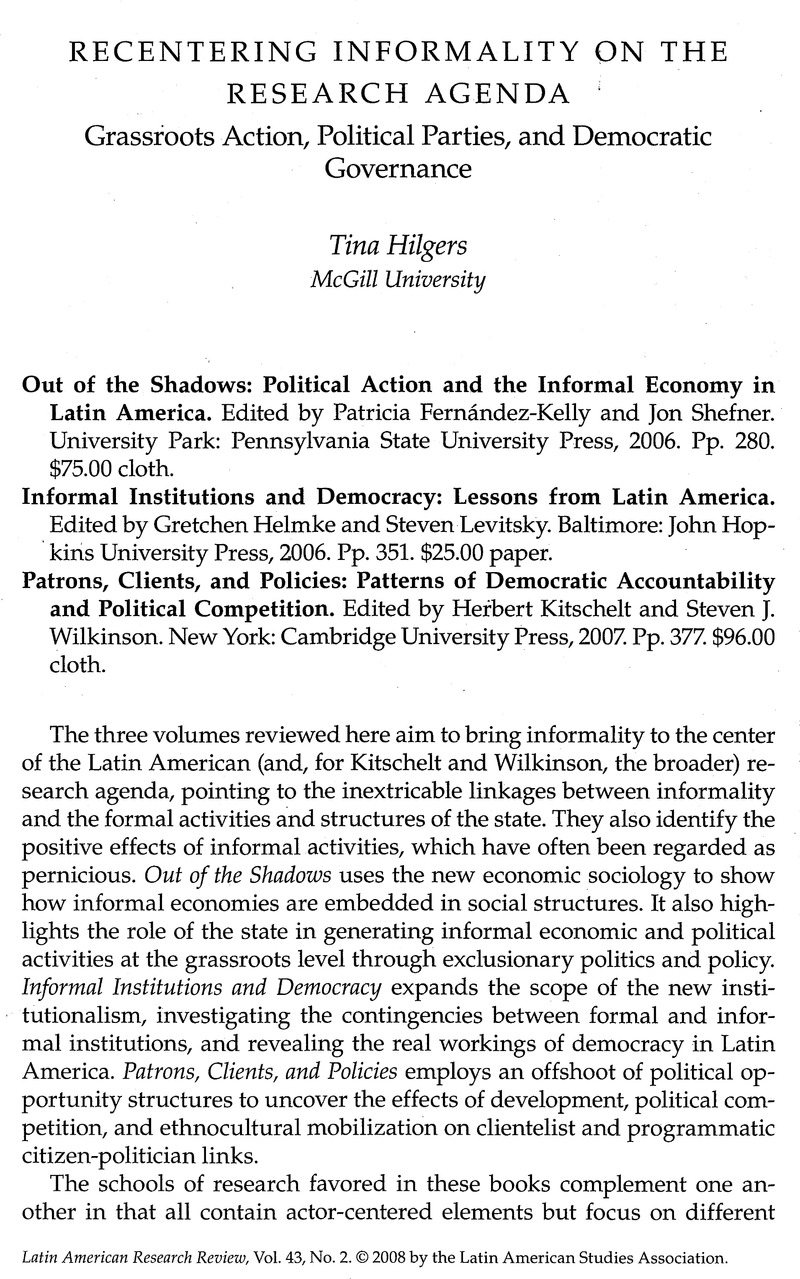Article contents
Recentering Informality on the Research Agenda: Grassroots Action, Political Parties, and Democratic Governance
Review products
Published online by Cambridge University Press: 05 September 2022
Abstract

- Type
- Review Essays
- Information
- Copyright
- Copyright © 2008 by the University of Texas Press
References
1. See, for example, Sidney W. Mintz and Eric R. Wolf, “An Analysis of Ritual Co-Parenthood (Compadrazgo),” Southwestern Journal of Anthropology 6, no. 4 (1950): 341–368; and Carl H. Landé, “Networks and Groups in Southeast Asia: Some Observations on the Group Theory of Politics,” American Political Science Review 67, no. 1 (1973): 103–127.
2. One researcher who has consistently considered the political, social, and economic aspects of informality is Judith Adler Hellman. See “The Role of Ideology in Peasant Politics: Peasant Mobilization and Demobilization in the Laguna Region,” Journal of Interamerican Studies and World Affairs 25, no. 1 (1983): 3–29, and Mexican Lives (New York: New Press, 1994).
3. Guillermo O'Donnell, “Another Institutionalization: Latin America and Elsewhere,” Kellogg Institute for International Studies at the University of Notre Dame Working Paper #222 (March 1996), 15.
4. Frank Dobbin, The New Economic Sociology (Princeton, NJ: Princeton University Press, 2004).
5. Illegal activities are a special category, distinct from informality, as Cross and Peña (60–61) and Centeno and Portes (27) discuss.
6. Herbert Kitschelt, “Political Opportunity Structures and Political Protest: Anti-Nuclear Movements in Four Democracies,” British Journal of Political Science 16, no. 1 (1986): 58.
- 3
- Cited by




